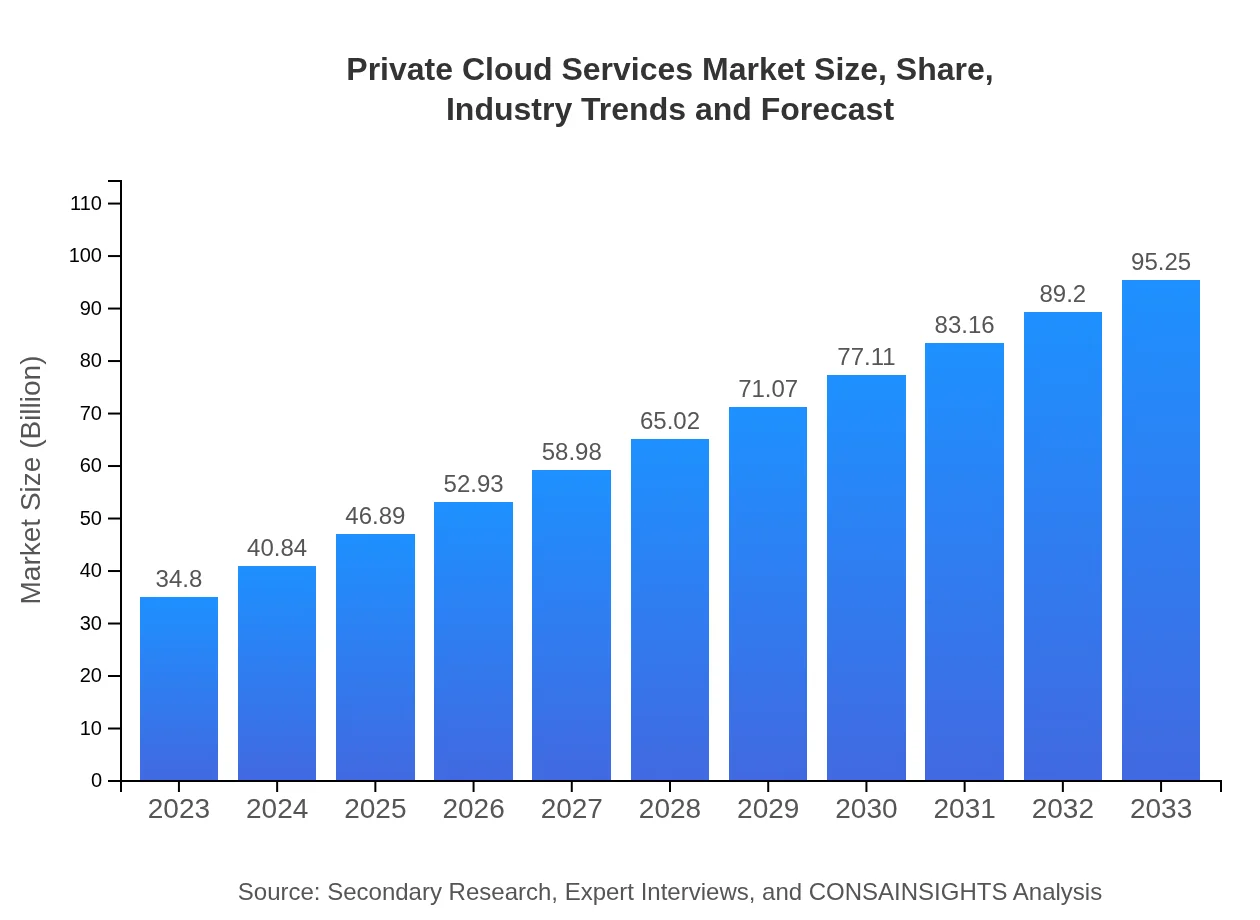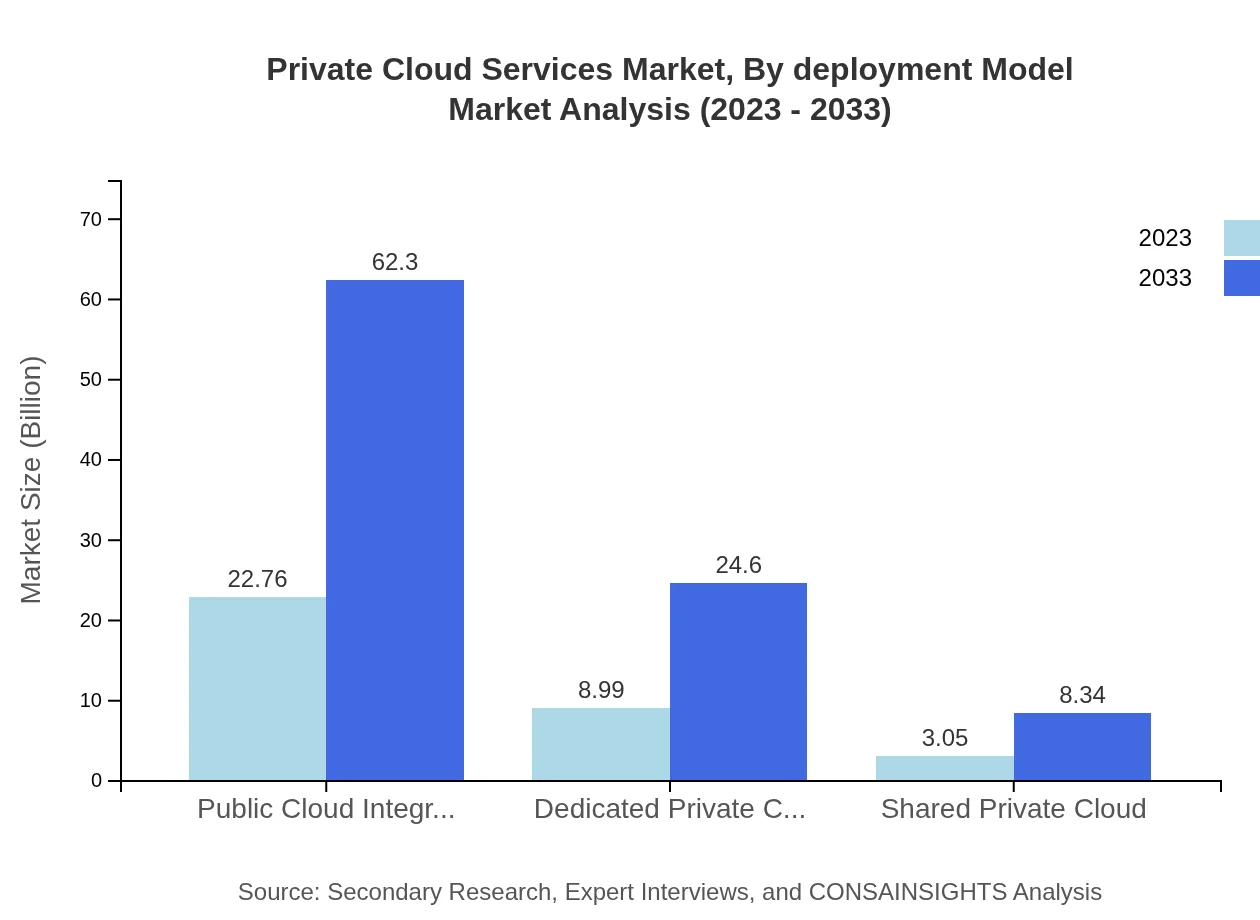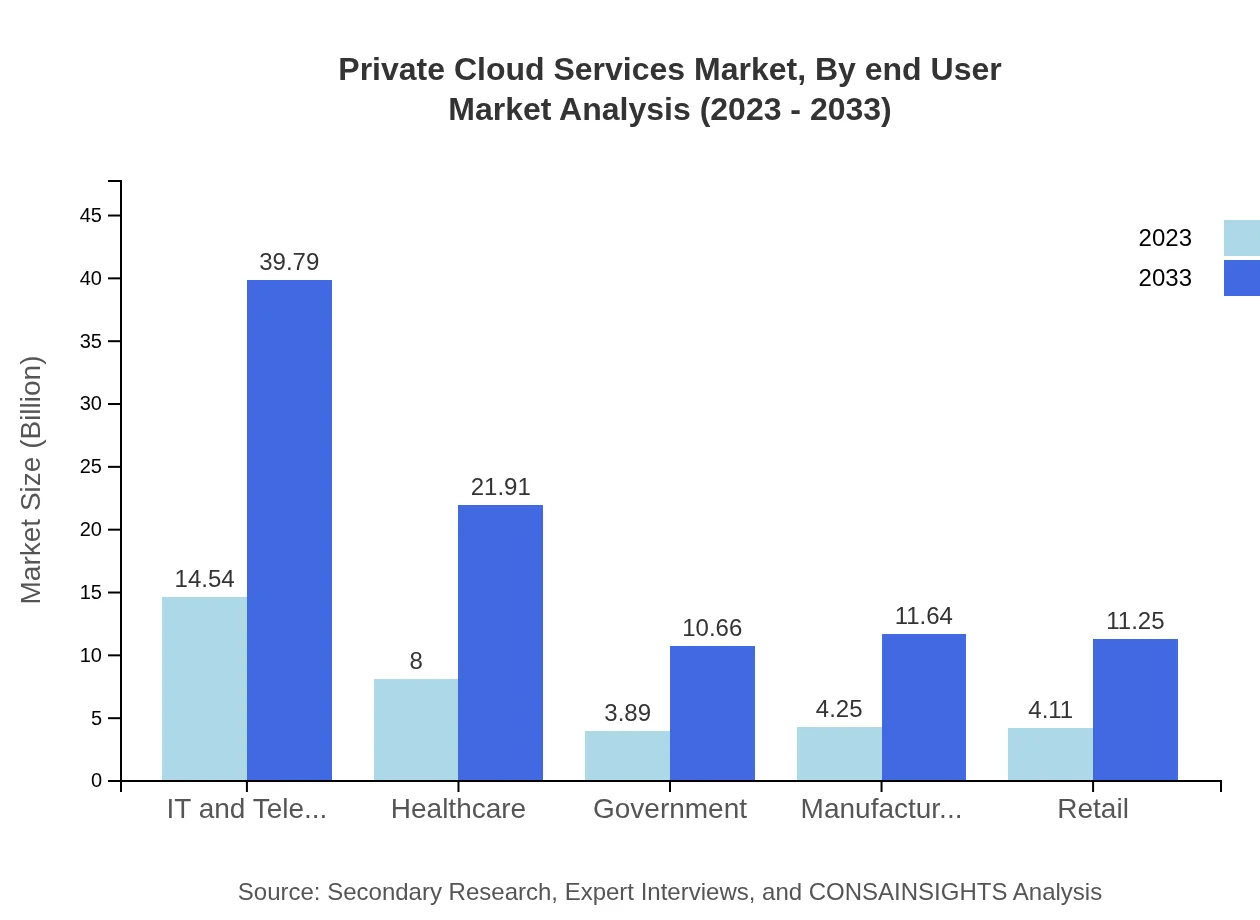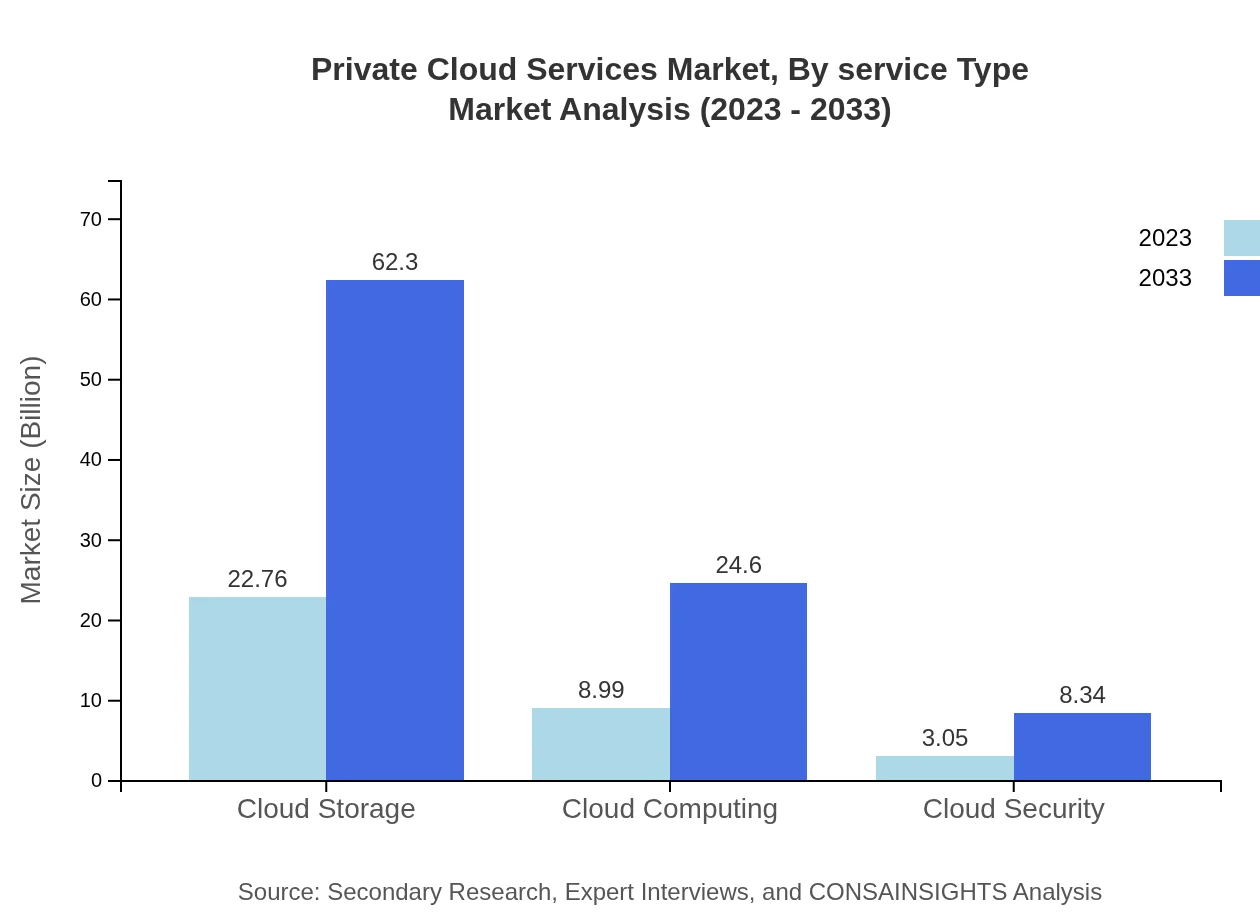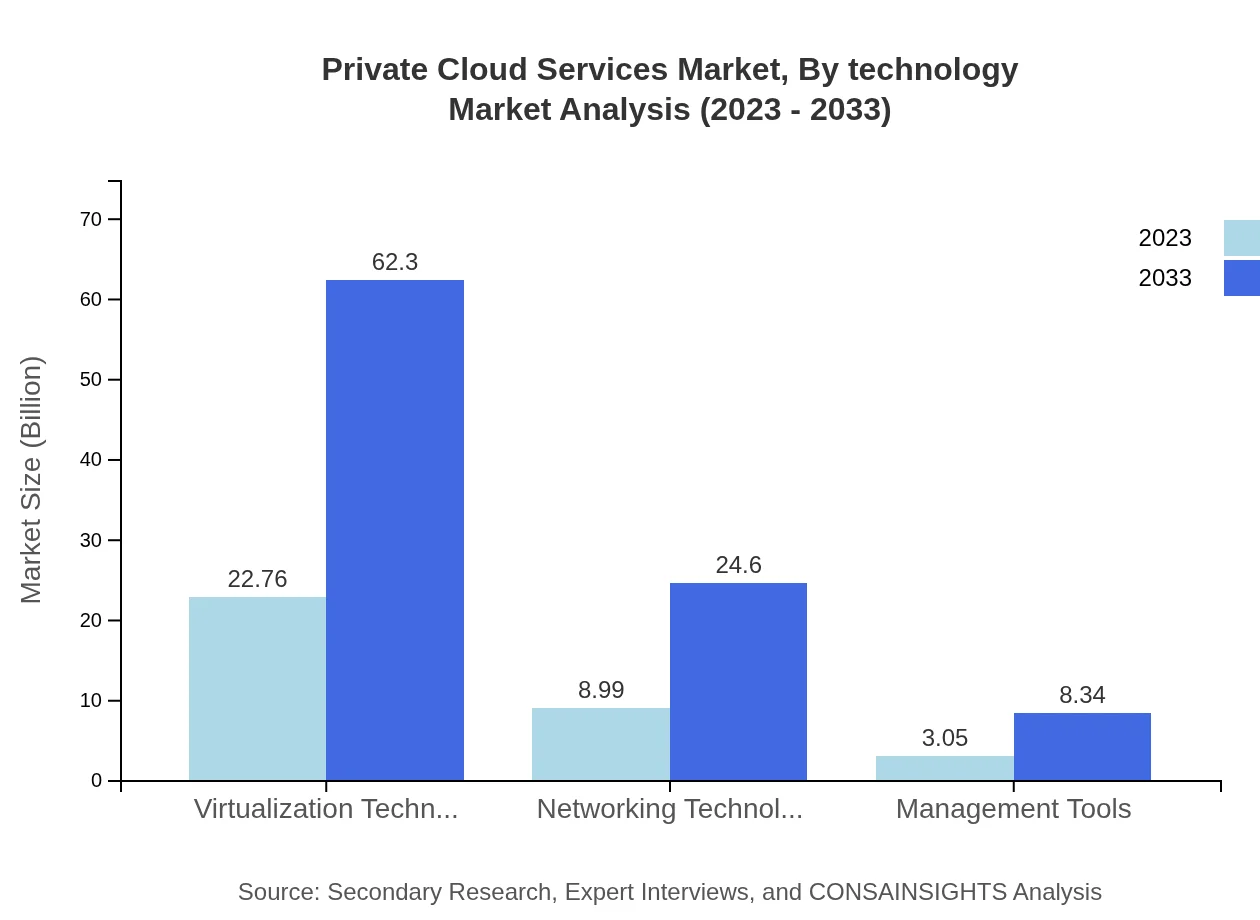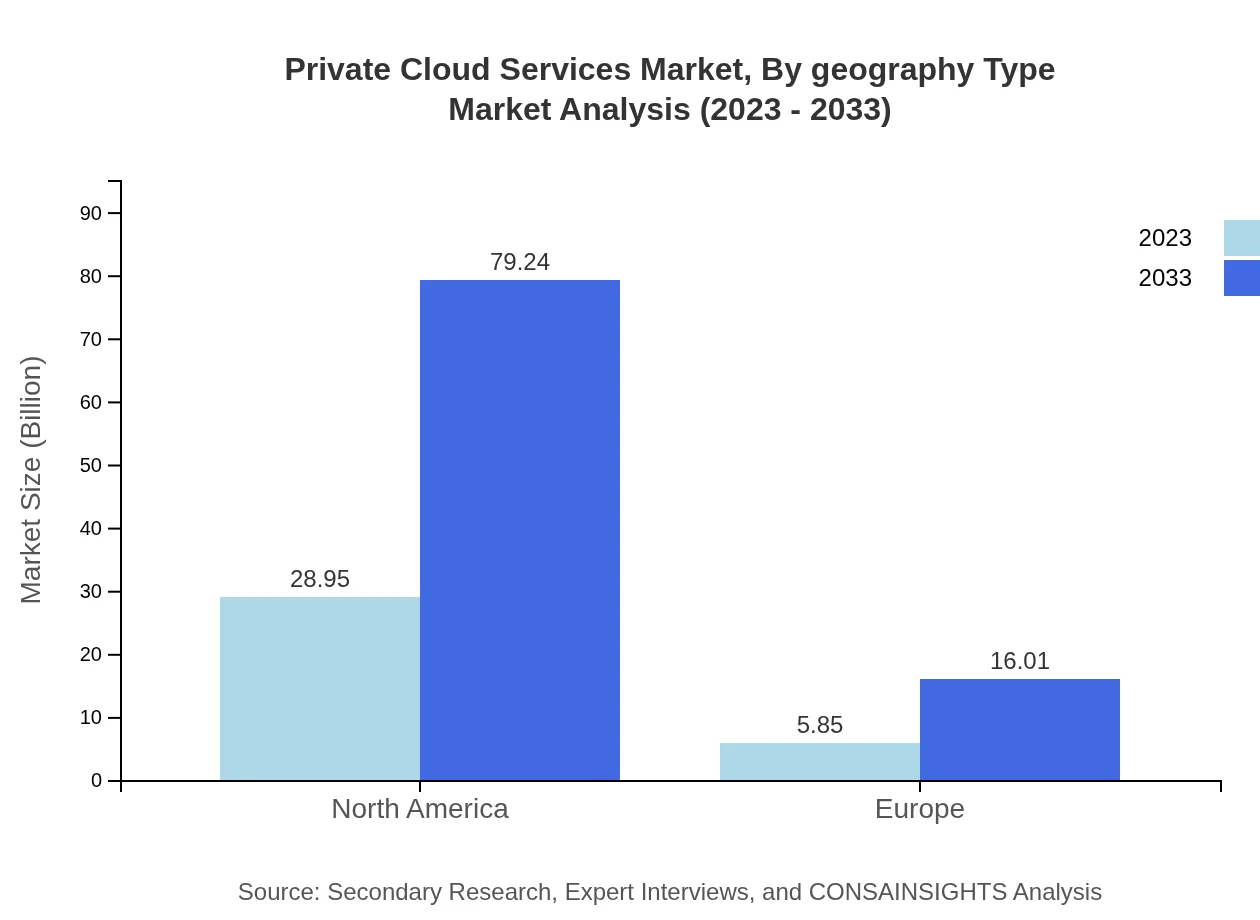Private Cloud Services Market Report
Published Date: 31 January 2026 | Report Code: private-cloud-services
Private Cloud Services Market Size, Share, Industry Trends and Forecast to 2033
This report offers a comprehensive analysis of Private Cloud Services, highlighting market size, trends, and forecasts from 2023 to 2033. It covers industry insights, segmentation, regional performance, and technological advancements to provide a complete picture for stakeholders.
| Metric | Value |
|---|---|
| Study Period | 2023 - 2033 |
| 2023 Market Size | $34.80 Billion |
| CAGR (2023-2033) | 10.2% |
| 2033 Market Size | $95.25 Billion |
| Top Companies | Amazon Web Services (AWS), Microsoft Corporation, IBM Corporation, VMware, Inc., Oracle Corporation |
| Last Modified Date | 31 January 2026 |
Private Cloud Services Market Overview
Customize Private Cloud Services Market Report market research report
- ✔ Get in-depth analysis of Private Cloud Services market size, growth, and forecasts.
- ✔ Understand Private Cloud Services's regional dynamics and industry-specific trends.
- ✔ Identify potential applications, end-user demand, and growth segments in Private Cloud Services
What is the Market Size & CAGR of Private Cloud Services market in 2023?
Private Cloud Services Industry Analysis
Private Cloud Services Market Segmentation and Scope
Tell us your focus area and get a customized research report.
Private Cloud Services Market Analysis Report by Region
Europe Private Cloud Services Market Report:
In Europe, the market size is estimated to grow from $8.37 billion in 2023 to $22.91 billion by 2033. Heightened awareness about data privacy regulations and a shift towards sustainable cloud solutions are key factors enhancing market growth.Asia Pacific Private Cloud Services Market Report:
In the Asia Pacific region, the market for Private Cloud Services is projected to grow from $7.38 billion in 2023 to $20.21 billion by 2033. The growth is propelled by increased digitalization in countries like China and India, alongside a strong focus on data protection and compliance standards.North America Private Cloud Services Market Report:
North America remains the largest market for Private Cloud Services, with a valuation of approximately $13.30 billion in 2023, anticipated to reach $36.40 billion by 2033. The region's strong technological infrastructure and early adoption of cloud technologies drive substantial demand.South America Private Cloud Services Market Report:
For South America, the market is expected to rise from $3.48 billion in 2023 to $9.52 billion by 2033. Regional enterprises are increasingly investing in private cloud solutions to enhance operational efficiency and improve service delivery.Middle East & Africa Private Cloud Services Market Report:
The Middle East and Africa market is growing modestly from $2.27 billion in 2023 to $6.21 billion by 2033. Increased investments in IT infrastructure and digital transformation initiatives are contributing to the rising adoption of private cloud services.Tell us your focus area and get a customized research report.
Private Cloud Services Market Analysis By Deployment Model
The deployment model segment is crucial, with dedicated private cloud services projected to grow from $8.99 billion in 2023 to $24.60 billion by 2033. Shared private cloud solutions are also seeing significant growth, enhancing organization collaboration.
Private Cloud Services Market Analysis By End User
The IT and telecom sector dominates the market of private cloud services, expected to account for approximately $14.54 billion in 2023, growing to $39.79 billion by 2033. Other growing sectors include healthcare, government, and retail, which emphasize the importance of private cloud solutions for secure operations.
Private Cloud Services Market Analysis By Service Type
Service types include cloud storage, cloud computing, and cloud security. For instance, the cloud storage segment is projected to rise from $22.76 billion in 2023 to $62.30 billion by 2033, reflecting the growing reliance on data management solutions.
Private Cloud Services Market Analysis By Technology
Technologies such as virtualization and networking are driving innovation, with virtualization technologies set to increase from $22.76 billion in 2023 to $62.30 billion by 2033, highlighting their pivotal role in cloud service optimization.
Private Cloud Services Market Analysis By Geography Type
Significant variations exist in market performance by geography, with North America accounting for the majority share in 2023, expected to maintain a commanding presence due to advanced infrastructure and technology adoption.
Private Cloud Services Market Trends and Future Forecast
Tell us your focus area and get a customized research report.
Global Market Leaders and Top Companies in Private Cloud Services Industry
Amazon Web Services (AWS):
AWS offers comprehensive cloud computing solutions, including private cloud services to enhance flexibility and security for businesses.Microsoft Corporation:
Microsoft provides a range of services for private cloud environments through its Azure platform, boosting enterprise productivity and data management.IBM Corporation:
IBM specializes in hybrid and private cloud solutions, focusing on data security and enterprise applications to support large-scale organizations.VMware, Inc.:
VMware is a leader in virtualization technologies and private cloud solutions, driving efficiency and innovation in cloud infrastructure.Oracle Corporation:
Oracle offers integrated database and application services tailored for private cloud deployments, helping businesses manage data effectively.We're grateful to work with incredible clients.









FAQs
What is the market size of private Cloud Services?
The global market size for private cloud services is projected to reach $34.8 billion by 2033, with a notable CAGR of 10.2%. This growth reflects the increasing demand for secure and scalable cloud solutions.
What are the key market players or companies in this private Cloud Services industry?
Key players in the private cloud services industry include Dell Technologies, IBM, Microsoft, Oracle, and VMware. These companies provide robust solutions that cater to various business needs, driving innovation in the sector.
What are the primary factors driving the growth in the private Cloud Services industry?
Factors such as data security requirements, increasing cloud adoption, scalability needs, and an emphasis on regulatory compliance are driving growth in the private cloud services industry, significantly impacting market dynamics.
Which region is the fastest Growing in the private Cloud Services?
North America is the fastest-growing region in the private cloud services market, projected to grow from $13.30 billion in 2023 to $36.40 billion by 2033. This accelerated growth is driven by high demand for cloud solutions in enterprise sectors.
Does ConsaInsights provide customized market report data for the private Cloud Services industry?
Yes, ConsaInsights offers customized market report data tailored to specific needs within the private cloud services industry, ensuring clients receive relevant insights and actionable data.
What deliverables can I expect from this private Cloud Services market research project?
Expect comprehensive deliverables including detailed market analysis, trend reports, competitive landscape assessments, and segmented data analysis by region and industry, providing valuable insights for decision-making.
What are the market trends of private Cloud Services?
Current trends in the private cloud services market include the rising adoption of hybrid cloud solutions, increased focus on automation and virtualization, and an emphasis on enhancing security measures to safeguard sensitive data.

